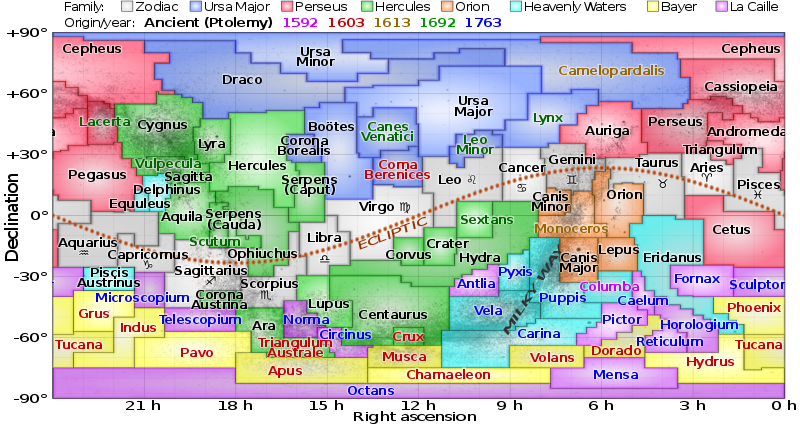by Alphonse Daudet

While I was guarding the flocks on Lubenon Mountain, sometimes I remained whole weeks without seeing a living soul, alone with my dog and my sheep. Occasionally the hermit of the mountains passed by, hunting for herbs, or perchance I saw the black face of a Piedmont charcoal-burner; but these were simple men, silent through force of habit, men who had lost the liking for speech and who knew nothing of what went on down in the villages and towns.
I was indeed happy, therefore, when every fortnight I heard coming up the road the bells of our farm-mule, and when I saw the jolly face of the little farm-boy or the red head-dress of old Aunt Norade appearing from under the hill with my provisions for the next two weeks. I made the messenger tell me all the news of the countryside, the baptisms, the marriages; but what interested me more than anything else was to hear about my master’s daughter, Stephenette, the fairest maiden for leagues around. Without appearing to take too much interest, I inquired if she attended the fetes and the village gatherings, if there were always new admirers ; and to those who asked what this mattered to me,a poor mountain shepherd, I answered that I was twenty years old, and that Stephenette was the most beautiful maiden I had seen in all my life.
One Sunday, as I awaited the fortnight’s provisions, I began to realize that they were late in arriving. At ten o’clock I said to myself, ” It is because of the high mass.” Then, when toward noon there came a great tempest, I thought the mule was not able to make the journey on account of the bad state of the roads. Finally, however, at three o’clock, the sky grew lighter, the mountain gleamed under sudden sunshine, and I heard, amidst the rain dropping from the leaves and the overflowing rush of the swollen streams, the bells of our mule, as clear and gay as a great chiming of church bells on an Easter day. But it was not the little farm-boy, nor yet the old Norade, who was driving the mule. It was my master’s daughter herself,flushed and rosy with the fresh mountain air, seated between the willow baskets.
The farm-boy was ill, Aunt Norade away on a holiday with her children. The beautiful Stephenette told me all this as she descended from the mule, also that she was late in coming because she had lost her way. To see her dressed in her flowered ribbons, soft laces, and bright petticoat, one would think she was arrayed for some fete rather than for finding her way in the thickets. Oh, the charming creature! I could not keep my eyes away from her. True, I had never seen her so near before. Sometimes in the winter, when the flocks had come down from the mountain and I was at the farm for supper, she—always richly dressed and a little proud—would pass through the hall quickly, without deigning to speak to the servants. Now she was here alone with me… Was this not enough to make me lose my head?
When the provisions were taken out of the baskets, Stephenette looked around her curiously. Lifting a little her gay Sunday petticoat lest it should be frayed by the branches, she entered the sheepfold, wanting to see my shepherd’s crook, my gun, my great coat hanging on the wall, my straw pallet with its sheepskin covering. All these things amused her.
” So it is here that you live, my poor shepherd? How lonely you must be. What do you think about ?” I had difficulty not to reply, “About you, mistress!” And it would have been the truth. But my agitation was so great that I could not utter a word. I believe, indeed, that she saw this, and wickedly took pleasure in increasing my embarrassment. ” And is there not some good friend, shepherd, who comes to see you at times? The sheep with the golden fleece ought to come, or the fairy Esterelle, who visits only the mountain tops.” She herself,as she said this, with a dainty toss of her head, turning to depart, might have been the fairy Esterelle. ” Adieu, shepherd ” “A safe return, mistress !” I answered; and she was gone with the empty baskets. As she disappeared down the pathway it seemed to me that the pebbles, rolling from under the feet of her mule, fell one by one on my heart. I heard them for a long, longtime; and even until nightfall I remained as if dazed, not daring to move, lest the dream of her visit should vanish.
Toward evening, as the depths of the valley grew blue and the sheep came, bleating, running against one another, to get into the fold, I heard some one Call me from the dim pathway, and, lo! Stephenette appeared, no longer laughing, but trembling with cold and fear. Down in the valley she had found the river swollen by the rainfall, and, trying to cross, had been almost drowned. It was too late to think of her being able to reach the farm, for the road which she must needs traverse she could never find alone, and I could not leave my sheep. She was terrified at the idea of passing the night on the mountain. But I reassured her. “In July the nights are short, mistress.” I quickly lighted a great fire to dry her feet, and her dress, all soaked as it was with water. Then I placed milk and cheese before her. The poor little lady, however, did not wish to warm herself or to eat. Seeing the great tears come into her eyes, I had difficulty not to weep myself.
The night had now fallen. On the mountain-crest alone a glow remained from a cloud of vapor lighted by the setting sun. Having spread a beautiful new skin over some fresh straw in the sheepfold, I begged my lady to try to sleep, and bade her good-night, seating myself outside the door. God knows that, stirred as my heart was, no other thought came to me than one of great pride that in a corner of the sheep-fold, surrounded by the curious flock who watched her sleep, my master’s daughter, herself a lamb whiter and more precious than all the others, reposed, confident of my care. Never had the heavens appeared to me so profound, never the stars so brilhant.
Suddenly the door of the sheep-fold opened, and Stephenette appeared. She could not sleep: the foolish sheep rustled the straw or bleated in their dreams ; she would rather be nearer the fire. Seeing this,I put my goatskin over her shoulders and stirred the fire. Then we sat, one near the other, without speaking. If one has ever passed a night under the stars, one knows that during the hours when most people sleep a mysterious world awakens in the solitude and the silence. It is then that the streams sing more clearly and the jjools give back the starlight. All the mountain spirits come and go freely, and the air is full of light touches, almost imperceptible sounds, as if one could hear the branches growing, the grass springing forth. The day is the hfe of beings, but the night is the life of things. When one is not accustomed to it, one is afraid. So my master’s daughter trembled, and leaned against me at the least noise.
Once a long, melancholy cry arising from a pool which glistened lower down came toward us in waves. At the very instant a falling star glided over our heads in the same direction, as if the cry carried a light with it. ” What is that?”asked Stephenette in a low voice. ” A soul entering Paradise, mistress.” And I made the sign of the cross. She also crossed herself and looked up meditatively for a moment. “Is it true that you are wizards, you shepherds?” ” Far from it, mistress. But we live nearer the stars, and we know what happens better than the people on the plains.” She was still looking up, her head resting on her hand. Surrounded by the goatskin, she looked like a little celestial herdsman. ” How beautiful the stars are! I have never seen so many. Do you know their names, shepherd?” ” Oh, yes, mistress. See! just above us is the Path of St. Jacques,^ which leads from France to Spain; it was St. Jacques de Galice who pointed out the road to the brave Charlemagne when he was making war on the Saracens. Farther beyond is the Chariot of Souls, with its four splendid wheels. The three stars in front are the three steeds, and the lit-” All these details of popular astronomy are from the Provengal Almanac, published in Avignon. tie one behind is the Charioteer. Do you see all around the Chariot that rain of falling stars?
Those are the souls whom the good God will not admit to heaven. A little lower down is the Rack, which serves us shepherds as a clock; looking at it now I know that midnight has passed. But the most beautiful of all the stars, mistress, is ours, the Shepherds’ Star, which lights us at daybreak when we go forth with the sheep, and at nightfall when we return to the fold. We call this star Magnelonne—the beautiful Magnelonne, whom Pierre de Provence followed and married after seven years.” ” What, shepherd?Are there marriages among the stars?” ” Oh, yes, mistress!” As I went on explaining the stars, I felt something delicate fall lightly on my shoulder. It was her head, freighted with slumber, which leaned against me with its charming burden of ribbons and waving hair. Stepanette rested thus, without stirring, until the stars paled in the sky before the coming day. I watched her sleeping, moved to the depths of my soul, protected by the clear night. Around us the stars continued their silent march, obedient as a great flock; and for the time I imagined that one of the most brilliant, most exquisite stars, having lost its way, had alighted on my shoulder to sleep.

